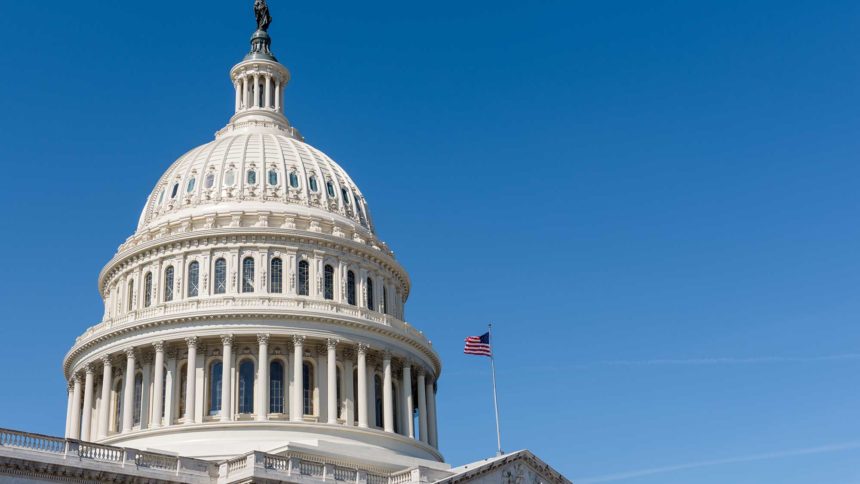
There’s much for the senior living industry to like in the $3 trillion Health and Economic Recovery Omnibus Emergency Solutions (HEROES) Act that passed Friday night by a 208-199 vote in the House of Representatives.
As of Friday, however, it doesn’t appear that the bill, which had been proposed by House Democrats, will make it out of the Republican-controlled Senate, at least as it is written now. “Forget about this $3 trillion left-wing wish list,” Senate Majority Leader Mitch McConnell (R-KY) tweeted Friday. McConnell reportedly wants the next relief bill to include lawsuit immunity for businesses.
The 1,815-page H.R. 6800, LeadingAge and other sources pointed out, among other provisions includes:
- A $200 billion “Heroes Fund” for hazard pay for essential workers.
- $500 million for the Department of Housing and Urban Development’s Section 202 Housing for the Elderly program and $750 million for Section 8 project-based rental assistance. Of the Section 202 resources, $300 million is to expand the number of service coordinators, and the remaining $200 million is for COVID-19-related expenses.
- An increase in the federal matching rate for Medicaid and a 10 percentage point increase in the federal share of Medicaid home- and community-based services. The increase would apply to waiver services, such as assisted living and adult day programs, as well as personal care, home health and the Program of All-inclusive Care for the Elderly. “Increases like these go to states, not providers, so the increase does not automatically mean providers will see higher rates,” LeadingAge said. “The HCBS share increase, however, requires states to use the extra money for Medicaid HCBS specifically, meaning more resources would be available for these supports if the Heroes Act becomes law.”
- Language that would prevent the federal government from finalizing the proposed Medicaid Fiscal Accountability Regulation, which was a concern for operators of continuing care retirement / life plan communities and others, through the end of the COVID-19 national emergency.
Thursday, after the bill had been presented but not passed, Sloan cheered that it contained “appreciation pay” for frontline workers and recognition of the need for service coordinators in Section 202 affordable housing communities.
Argentum also was pleased that the bill included an additional $100 billion for the Public Health and Social Services Emergency Fund, the Heroes Fund, and $75 billion more for a testing, contact tracing, and isolation measure, President and CEO James Balda said Saturday in a statement.
“But we know the legislation has a long way to go in negotiations with the Senate,” he said. “We will continue to have conversations with members of Congress and the administration to be sure senior living is expressly considered and carved out as an industry among the provisions outlined. It is essential the industry receives significant federal relief and resources very soon, especially as states and regions begin to reopen.”
“It is essential the industry receives significant federal relief and resources very soon, especially as states and regions begin to reopen.”
Argentum President and CEO James Balda
Balda made an appearance on Fox News on Saturday to discuss senior living communities’ need for federal support for personal protective equipment, testing and funding.
Although it remains to be seen whether the HEROES Act reaches the president’s desk, five provisions of the original or House-passed bill have a chance of becoming law, according to Kiplinger: a second round of stimulus checks, improvements to the employee retention credit, expansion of the Paycheck Protection Program, aid to state and local governments, and an extension of unemployment benefits.
In other coronavirus-related news:
- Assisted living communities and nursing homes account for 40% of COVID-19-related deaths, according to an analysis by the Foundation for Research on Equal Opportunity, a nonprofit, nonpartisan think tank.
- Gov. Tim Walz has called in the Minnesota National Guard to help expand COVID-19 testing in long-term care facilities that have been hardest hit by the coronavirus. The definition of long-term care facilities in the state includes assisted living.
- The North Carolina Department of Health and Human Services is now encouraging assisted living communities and nursing homes to test all employees and residents if their buildings have one laboratory-confirmed case of COVID-19.
- Nebraska state officials are asking all assisted living and nursing home operators to submit a coronavirus response plan addressing the rapid identification and management of ill residents, visitation policies, supplies and resources, infection control and disinfection protocols, surge capacity for staffing. The state has created a tool and online resources for operators.
- For the first time, the Utah Department of Health is publicly disclosing which assisted living communities, skilled nursing facilities and intermediate care facilities have coronavirus cases. The state is not sharing the exact number of cases in each community but rather is sharing data in categories of ranges of cases.
- The leader of the North Carolina Assisted Living Association recently told state lawmakers that senior living operators need access to testing as well as funding to restructure activities to help residents feel less isolated, including expenses for technology and building redesign.
- Independent living residents at Lambeth House in New Orleans, where 21 residents reportedly died from coronavirus, were permitted to resume activities outside of the community on Saturday. Their dining room and salon will open at limited capacity this week. The facility also includes assisted living and nursing care.



